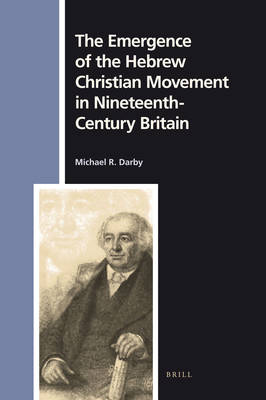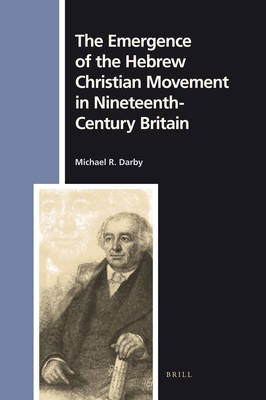
- Afhalen na 1 uur in een winkel met voorraad
- Gratis thuislevering in België vanaf € 30
- Ruim aanbod met 7 miljoen producten
- Afhalen na 1 uur in een winkel met voorraad
- Gratis thuislevering in België vanaf € 30
- Ruim aanbod met 7 miljoen producten
The Emergence of the Hebrew Christian Movement in Nineteenth-Century Britain
Darby
€ 224,45
+ 448 punten
Omschrijving
In nineteenth-century Britain the majority of Jewish believers in Christ worshipped in Gentile churches. Some attained ethnic and institutional independence. A few debated the implications of incorporating into their worship the observance of Jewish tradition, and advocated the theological and liturgical independence of Hebrew Christianity, characterised by opponents as the "scandal of particularity". Previous scholarship has documented several Hebrew Christian initiatives but this monograph breaks new ground by identifying almost forthy discrete institutions as components of a century-long movement. The book analyses the major pioneers, institutions and ideologies of this movement and recounts how, through identity negotiation, hebrew Christians - and also their Gentile supporters - prepared the way for the development in the twentieth century of Messianic Judaism.
Specificaties
Betrokkenen
- Auteur(s):
- Uitgeverij:
Inhoud
- Aantal bladzijden:
- 296
- Taal:
- Engels
- Reeks:
- Reeksnummer:
- nr. 128
Eigenschappen
- Productcode (EAN):
- 9789004184558
- Verschijningsdatum:
- 5/10/2010
- Uitvoering:
- Hardcover
- Formaat:
- Genaaid
- Afmetingen:
- 165 mm x 244 mm
- Gewicht:
- 576 g

Alleen bij Standaard Boekhandel
+ 448 punten op je klantenkaart van Standaard Boekhandel
Beoordelingen
We publiceren alleen reviews die voldoen aan de voorwaarden voor reviews. Bekijk onze voorwaarden voor reviews.








